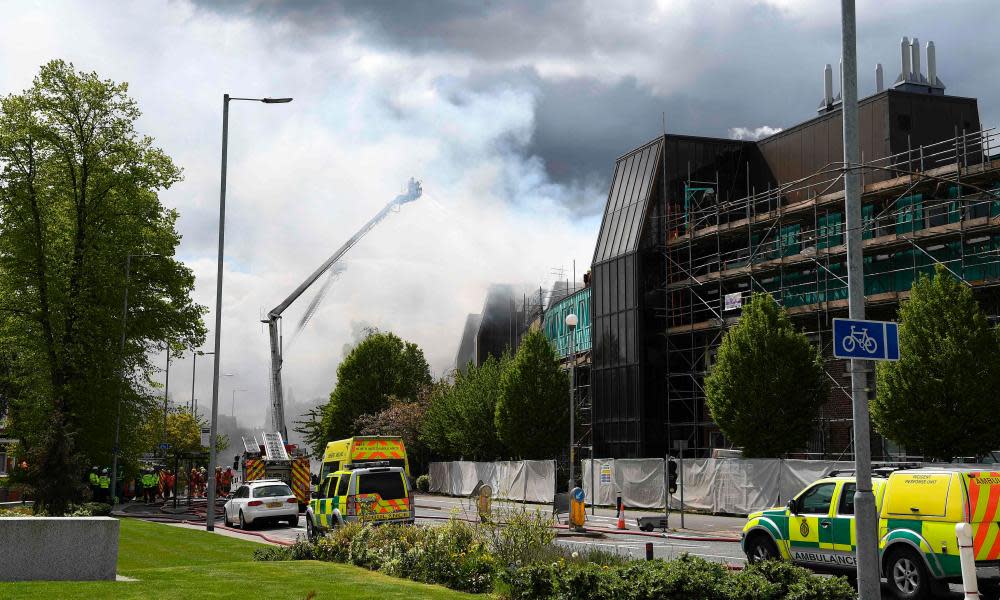Manchester cancer hospital fire 'may have destroyed vital research'

Years of research and millions of pounds of life-saving equipment are feared to have been destroyed in a devastating fire at a cancer hospital in Manchester, its director has said.
Prof Richard Marais, the head of the Cancer Research UK Manchester Institute, said researchers had been able to save 25 years of clinical samples, but that other vital work was lost in the “heartrending” blaze at Christie hospital.
“We’ve lost hundreds of thousands of pounds of vital reagents. We’ve probably lost a lot of small lab equipment, the small pieces where the ceiling collapsed at landed on them,” he said on Friday.
“We’ve almost certainly lost data where computers have been ruined. We’re going to go in and salvage as much of that as possible.”
An investigation has been launched into cause of the fire, which started in the roof of the research centre shortly after 10am on Wednesday. More than 100 firefighters and 16 fire engines tackled the blaze at the Paterson building in south Manchester.
Marais said researchers would be allowed into the three-storey building later on Friday to assess the extent of the damage and salvage the remaining equipment.
Among the equipment feared to have been lost is the centre’s £1.4m Trudon super computer, which is used to analyse and store large amounts of DNA data, two DNA sequencing machines used to analyse patients’ tumours, together worth £700,000, and two imaging machines used to analyse individual cells from tumours worth more than £1m.
Cancer Research UK, which spent £22m last year on scientific research at the internationally renowned Manchester institute, appealed for donations to help scientists continue their work as soon as possible.
Marais said the research centre would need millions of pounds to get back on its feet and replace equipment feared to have been lost. More than £16,000 had been raised within hours of the campaign being launched on Friday morning.
“The quality of the institute is the people. Not necessarily the equipment – that’s what allows us to do what we can do – but we have a fantastic group of international people here and I’ve been amazed at how they’ve met this challenge,” he said.
“We will rebuild this institute. It’s internationally, nationally and locally, incredibly important.
“The purpose of our work is to improve patient care, so any delay will have an impact on patients. It’s about getting going again as soon as possible so we can improve patient care.”
Marais praised the actions of firefighters who quickly tackled the blaze and went “above and beyond” trying to save important equipment.
Marais and his wife, who does not work at the institute, were allowed into the centre on Wednesday night with firefighters to save -80C (-112F) freezers used to store 25 years’ of clinical samples.
He said the institute was very concerned about any research it may have lost and so were “PhD students, postdoctorate fellows and group leaders carrying out experiments which were abruptly ended”.
“People are upset, but they’ve also frustrated because they want to get going again. They need to know the answers to these questions about how much has been lost in the fire,” he said.

 Yahoo News
Yahoo News 
